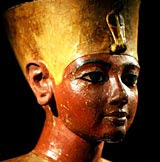
As an Armenian descendant I, among many, will never give up or forget the Armenian Genocide, please admit to this atrocity, the Germans did, why can't you? Turkish government should admit and go on with your lives, I believe the present and future generation will be proud of you!
By Robert Tait in Yerevan
Turkey risks a collapse of its secular political system akin to that of the Soviet Union if it bows to international pressure to recognise the 1915-22 Armenian genocide, the head of Armenia's state memorial to the event has told the Guardian.
Hayk Demoyan said Ankara could not acknowledge the systematic killing of up to 1.5 million Armenians by Ottoman troops during the first world war because it would lead to a wholesale re-writing of history and undermine the ideological basis of the Turkish state.
In remarks that will cast a shadow over attempts to forge a new Turkish-Armenian rapprochement, he said those implicated included Mustafa Kemal Atatürk, founder of modern Turkey and a figure Turks are taught to revere. Historical documents proved Atatürk committed "war crimes" against Armenians and other groups in his drive to create an ethnically homogeneous Turkish state, Demoyan insisted. "Fear of rewriting history is the main fear of modern Turkey," said Demoyan, director of The Armenian Genocide Museum-Institute in Yerevan, Armenia's capital.
"It is a fear of facing historical reality and causing a total collapse of the ideological axis that modern republican Turkey was formed around. Turks get panicked when you compare Atatürk's legacy to Lenin.
Atatürk was sentenced to death in absentia by a military judge to punish war crimes during the first world war. There are documents from non-Armenian sources listing him as a war criminal ."
Demoyan's remarks come amid fledgling attempts to re-establish links between two countries which have not had diplomatic relations since 1994, following a war between Armenia and Azerbaijan, Turkey's ally.
Tentative efforts towards normalising ties occurred this month when the Turkish president, Abdullah Gül, visited Yerevan to attend a World Cup football match between Turkey and Armenia at the invitation of his Armenian counterpart, Serge Sarkisian.
Unlike most visiting heads of state, Gül did not visit the genocide museum, which displays documentary and photographic exhibits proving, Armenian officials say, that their ethnic brethren were subjected to deliberate genocide. Turkey vehemently denies this and has jailed Turkish citizens who argued otherwise. However, rising numbers of Turkish tourists and journalists have visited the museum recently.
"More than 500 Turks have visited this year. They've come in unprecedented numbers," Demoyan said. "Their reaction is one of shock. At first there is denial. Sometimes they ask: 'What is our sin?' or 'How can we be responsible for this?'. It's not taught in Turkish schools, so we understand their reaction."
Turkey claims the Armenian death toll has been exaggerated and that most victims died from starvation or disease. It also argues that many Turks were killed by Armenian groups.

